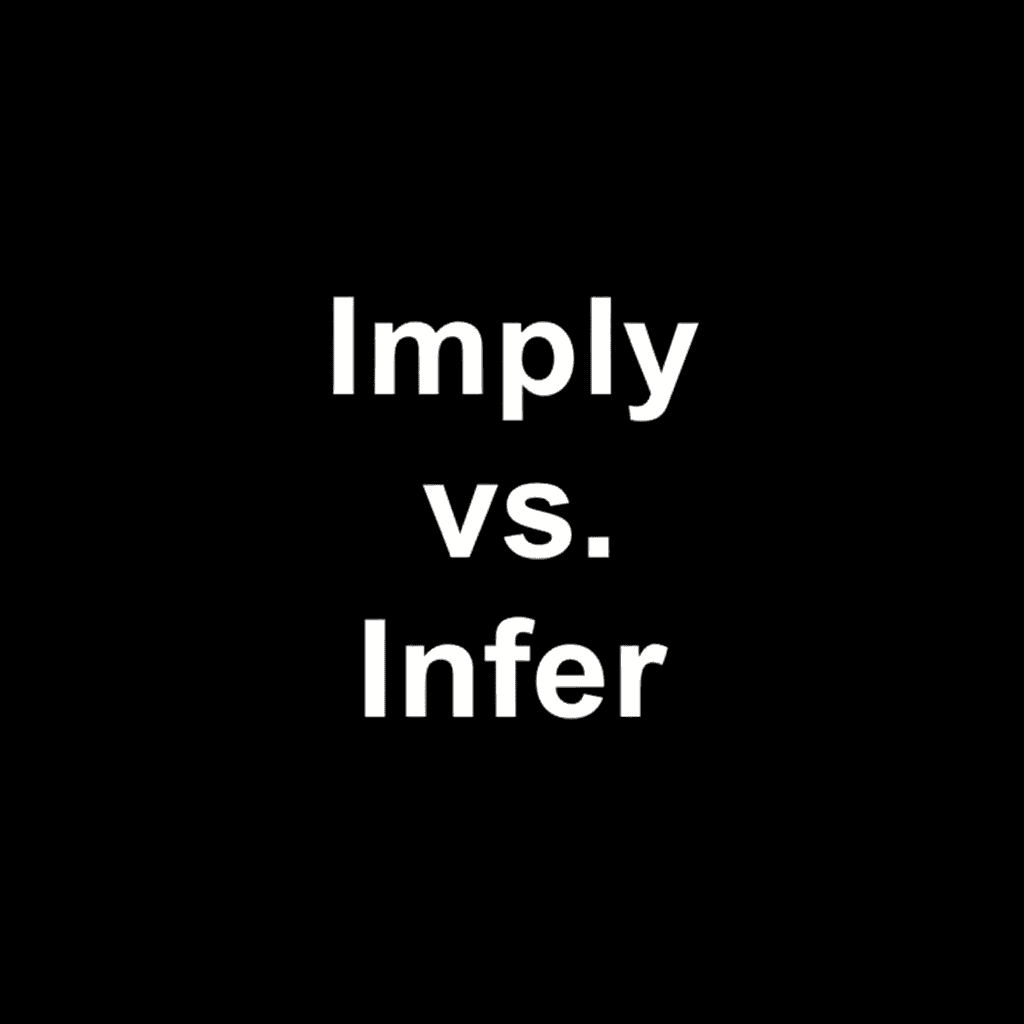Imply vs. Infer: What’s the Difference?
 These two words are often confused, but they move in opposite directions.
These two words are often confused, but they move in opposite directions.
Imply → ✔ to suggest something indirectly (speaker/writer) Infer → ✔ to conclude something from evidence (listener/reader)
Think of it as sending vs. receiving meaning.
1. Imply
Meaning
Imply means to hint, suggest, or express indirectly without saying something outright.
The speaker or writer does the implying.
Examples (10 total)
- She didn’t say it, but she implied it.
- Are you implying that I’m wrong?
- His tone implied frustration.
- The smile implied agreement.
- The message implied urgency.
- He implied that he needed help.
- Her silence implied disapproval.
- The report implied major changes ahead.
- They implied he wasn’t welcome.
- The advertisement implied better results.
🧠 Tip:
If someone is sending a hidden message, they imply.
2. Infer
Meaning
Infer means to understand, deduce, or conclude something based on clues or evidence.
The listener or reader does the inferring.
Examples (10 total)
- From her tone, I inferred she was upset.
- He inferred the meaning from context.
- We inferred the result from the data.
- She inferred that he needed help.
- They inferred trouble from the silence.
- I inferred that the meeting was canceled.
- The students inferred the theme of the story.
- He inferred danger from the footprints.
- She inferred he wasn’t coming back.
- The audience inferred the ending.
🧠 Tip:
If someone is figuring out the hidden message, they infer.
3. Quick Comparison Table
| Word | Meaning | Who Does It? | Example |
|---|---|---|---|
| Imply | to suggest | speaker/writer | She implied I was late. |
| Infer | to conclude | listener/reader | I inferred she was upset. |
4. How to Remember
👉 Imply = give
👉 Infer = receive
Memory trick:
If the meaning travels outward, someone implies.
If the meaning travels inward, someone infers.
5. Common Mistakes
❌ “Are you inferring that I’m wrong?”
✔ Correct: “Are you implying that I’m wrong?”
❌ “From his tone, he implied he was angry.”
✔ Correct: “From his tone, I inferred he was angry.”
❌ Mixing them because they sound similar
✔ Remember: imply → send; infer → understand
Writing More Naturally
Choosing imply vs. infer correctly makes your writing clearer and more professional. If you want help polishing tone or improving clarity, an humanize AI text tool can refine your sentences instantly.
FAQs
1. Can the same person imply and infer?
Only if they are in different roles — but not in the same moment.
2. Does “infer” always require evidence?
Yes — inference is conclusion based on clues.
3. Is “infer” formal?
It works in both formal and informal settings.
4. Is “imply” indirect?
Always — it suggests rather than states directly.
Practice: Choose the Correct Word
(Answers at the end.)
- Are you __________ that I’m lying?
- From her look, I __________ that she was annoyed.
- He didn’t say it directly, but he __________ it.
- We can __________ from the data that sales dropped.
- Her silence __________ disagreement.
Answers
- implying
- inferred
- implied
- infer
- implied
